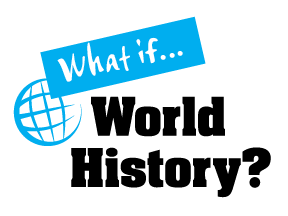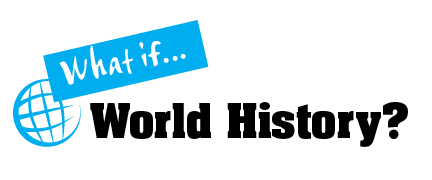Countdown to Armageddon
The Buildup
At the height of the Cold War, the US was aware of many of the Soviet covert actions abroad. And in July of 1962, they learned about the Russian missile shipments to Cuba. And regular U2 reconnaissance flights showed new military construction and the presence of Soviet technicians.
By October 14, right before the start of the crisis, ballistic missiles on launching pads were photographed. Such missiles could hit much of the eastern United States within a few minutes if launched from Cuba.
The Cuban Missile Crisis kicks into high gear on October 16, when the president is notified of the presence of the ballistic missile construction sites. In response, Kennedy created the Executive Committee of the National Security Council, which would be known as EXCOMM.
This select group of military and government leaders was importantly separated from the full Joint Chiefs and did not include members of Congress. This enabled the discussions and recommendations that would influence Kennedy to remain top secret and freewheeling.
In addition to JFK’s brother Robert Kennedy, who was Attorney General, EXCOMM included VP Lyndon Johnson, and the secretaries of state, treasury, defense, the director of the CIA, and the chairman of the Joint Chiefs.
In The Atlantic, Schwarz shares this story: When pondering Khrushchev’s motives for sending the missiles to Cuba, Kennedy made one of the most amazingly absentminded observations in the annals of American national-security policy: “Why does he put these in there, though? … It’s just as if we suddenly began to put a major number of missiles in Turkey. Now that’d be goddamned dangerous, I would think.” McGeorge Bundy, the national security adviser, immediately pointed out: “Well we did do that, Mr. President.”
Schwarz goes on: On that very first day of the EXCOMM meetings, Secretary of Defense McNamara provided a wider perspective on the missiles’ significance: “I’ll be quite frank. I don’t think there is a military problem here … This is a domestic, political problem.” In a 1987 interview, McNamara explained: “You have to remember that, right from the beginning, it was President Kennedy who said that it was politically unacceptable for us to leave those missile sites alone. He didn’t say militarily, he said politically.”
But even weightier than the domestic political catastrophe likely to befall the administration if it appeared to be soft on Cuba was “the psychological factor” that we “sat back and let ’em do it to us.”
Schwarz says: “Indeed, Washington’s self-regard for its credibility was almost certainly the main reason it risked nuclear war over a negligible threat to national security. The president stated, “Last month I said we weren’t going to [permit Soviet nuclear missiles in Cuba] and last month I should have said … we don’t care. But when we said we’re not going to, and [the Soviets] go ahead and do it, and then we do nothing, then … I would think that our … risks increase.”
From the beginning of the EXCOMM meetings right up until the end of the crisis, many of the members pushed for military options that included 500-1000 airstrikes against the total missile defense network of Cuba, including the ballistic missile launch sites the Russians were building.
The sorties would be followed by a full-scale invasion of Cuba that would overthrow Castro and once again install a friendly regime. RFK takes up the thinking in his book Thirteen Days. He writes: The general feeling, in the beginning, was that some form of action was required. There were those, although they were a small minority, who felt the missiles did not alter the balance of power and therefore necessitated no action. Most felt, at that stage, that an airstrike against the missile sites could be the only course. Listening to the proposals, I passed a note to the President: “I now know how Tojo felt when he was planning Pearl Harbor.”
Kennedy told the Joint Chiefs, who remained focused solely on the Cuban issue: So I don’t think we have any satisfactory alternatives. When we balance off that our problem is not merely Cuba but also Berlin, and when we recognize the importance of Berlin to Europe and recognize the importance of our allies to us, that’s what has made this thing a dilemma.
In the tense days of October 1962, being allied with the United States potentially amounted to, as Charles de Gaulle had warned, “annihilation without representation.”
The voice of reason in this maelstrom of testosterone and machismo became Adlai Stevenson who spoke to Kennedy on October 18. Sherwin in Gambling with Armageddon gives some details: Stevenson counseled Kennedy: Let’s not go into an airstrike until we have explored the possibilities of a peaceful solution. If diplomatic steps failed to remove the missiles, military activity of some sort might follow. But so would “Soviet reprisals somewhere--Turkey, Berlin, Italy. In that case: “It is important that we have as much of the world with us as possible.”
Stevenson’s proposals began to make more sense than the war-whoops of the Joint Chiefs and EXCOMM majority. Despite the president’s personal dislike for Stevenson-the-man, Stevenson’s intellect spoke clearly, direct, and persuasively to the president’s sensibilities.
On October 21, Kennedy was choosing between 2 EXCOMM recommendations: an airstrike against the Cuban missile bases or a naval blockade of Cuba. RFK writes in Thirteen Days: “Each one of us was being asked to make a recommendation which, if wrong and if accepted, could mean the destruction of the human race. That kind of pressure does strange things to a human being, even to brilliant, self-confident, mature, experienced men. For some, it brings out characteristics and strengths that perhaps they never knew they had, for others the pressure is too overwhelming.”
Kennedy chose the blockade, but the term "blockade" was problematic. According to international law, a blockade is an act of war, but the Kennedy administration did not think that the Soviets would be provoked to attack by a mere blockade. They decided on the term “quarantine” instead.
Additionally, legal experts at the State Department and Justice Department concluded that a declaration of war could be avoided if another legal justification, based on the Rio Treaty for the defense of the Western Hemisphere, was obtained from a resolution by a two-thirds vote from the members of the Organization of American States (OAS).
Sherwin writes: Of course the quarantine was a military action--an act of war under international law that could lead to a conflict with the Soviet Union. But it also was an action that invited negotiation and avoided the certainty of Soviet bloodletting. It was a signal to the Soviet leader that Kennedy was willing to bargain, which is exactly how Khrushchev interpreted it.
On October 22, Kennedy went before the nation to deliver one of the most important speeches of his young political career. He told the country: It shall be the policy of this nation to regard any nuclear missile launched from Cuba against any nation in the Western Hemisphere as an attack by the Soviet Union on the United States, requiring a full retaliatory response upon the Soviet Union. To halt this offensive buildup, a strict quarantine on all offensive military equipment under shipment to Cuba is being initiated. All ships of any kind bound for Cuba, from whatever nation or port, will if found to contain cargoes of offensive weapons, be turned back.
During this time, Kennedy was under immense pressure, and anger, from the Joint Chiefs to move forward with an invasion. He mollified them by moving forward with invasion plans without the express promise that an invasion would happen. Understandably, the Chief’s primary objective was to be in the best position to fight a war, while the president’s goal was to select the strategy that was least likely to start a war.
He ordered the Pentagon to make all the preparations necessary for further military action. Secretary McNamara, in a confidential report, had listed the requirements: 250,000 men, 2000 air sorties against the various targets in Cuba, and 90,000 Marines and Airborne in the invasion force. One estimate of American casualties put the expected figure over 25,000.
To enact the quarantine, the Navy deployed 180 ships into the Caribbean. The Strategic Air Command was dispersed to civilian landing fields around the country, to lessen its vulnerability in case of attack. The B-52 bomber force was ordered into the air fully loaded with atomic weapons. As one came down to land, another immediately took its place.
The US had placed itself ready for war, and in the Soviet Union, their posturing mirrored our actions.




